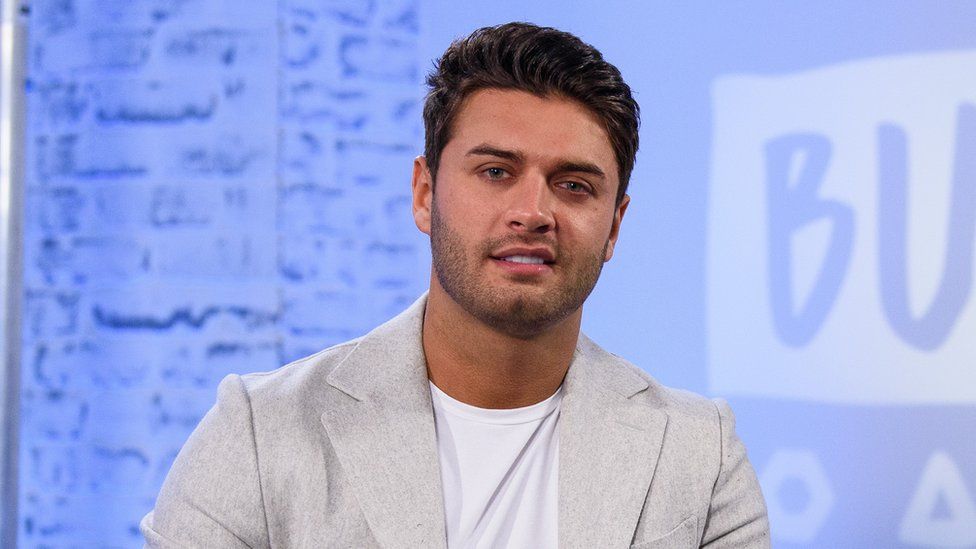Mike Thalassitis death: Love Island stars to be offered therapy
- Published

Love Island stars will in future be offered therapy, social media training and financial advice, ITV has said after the death of an ex-contestant.
Mike Thalassitis, who was on the show in 2017, was found dead in a north London park on Saturday. Police are not treating the incident as suspicious.
His death sparked calls for better aftercare for people on reality shows.
In a statement, ITV said the show's medical support is being independently reviewed.
And rather than waiting for contestants to ask for help, Love Island will "proactively" check up on them after they have left the show.
Last year, another former contestant of Love Island, Sophie Gradon, died aged 32. An inquest into her death was recently postponed.
Meanwhile, a government minister has told the BBC that the public has "started to enjoy reality TV a bit too much" and needs to take a "step back".
"When something so awful happens it is natural to enter a period of soul-searching and ask whether anything could have been done to help avoid something so terrible happening," the ITV statement continued.
Former Love Island contestant Zara Holland on what it's like inside the villa
The statement outlines the support currently on offer, which includes every contestant debriefing with a medical team - including a psychological consultant - after they leave the show.
ITV said that six months ago, the programme asked Dr Paul Litchfield - a well-being expert and former adviser to the government - to carry out a review into Love Island's medical processes.
"This review has led us to extend our support processes to offer therapy to all Islanders and not only those that reach out to us," it went on.
"And we will be delivering bespoke training to all future Islanders to include social media and financial management.
"The key focus will be for us to no longer be reliant on the Islanders asking us for support but for us to proactively check in with them on a regular basis."
Meanwhile, Health Minister Jackie Doyle-Price said reality TV was a "bit voyeuristic" and it was time for viewers to "step back here".
She told BBC Radio 5 Live: "And is this really what we want to be encouraging? Do we really want to encourage people to have five minutes of fame and then be dropped and then deal with all the mental stresses that come with that?"
Ms Doyle-Price called the two deaths a "wake-up call".
After Mr Thalassitis found fame on Love Island, he also appeared on the reality show Celebs Go Dating in 2018. He split from The Only Way Is Essex star Megan McKenna late last year.
Following his death, many other contestants of reality shows have spoken out to share tributes and to call for more support for people after they leave the programme and others like it.
Concerns over the mental health pressures caused by sudden TV stardom have been raised in the past, for example in the case of Britain's Got Talent runner-up Susan Boyle who was admitted to a London clinic in 2009.
And there has long been discussion over the well-being of contestants on Big Brother and Celebrity Big Brother.
Big Brother contestants could often leave the house to be greeted with booing crowds, and in its early series the show employed an on-screen "resident psychologist".
For more recent reality TV shows, such as Love Island and The Bachelor, there may not be waiting crowds as contestants get eliminated from the show, but they may instead endure trolling and negative comments on social media.
Follow us on Facebook, on Twitter @BBCNewsEnts, or on Instagram at bbcnewsents. If you have a story suggestion email entertainment.news@bbc.co.uk.
- Published30 July 2018
- Published18 March 2019
- Published17 March 2019
- Published17 March 2019